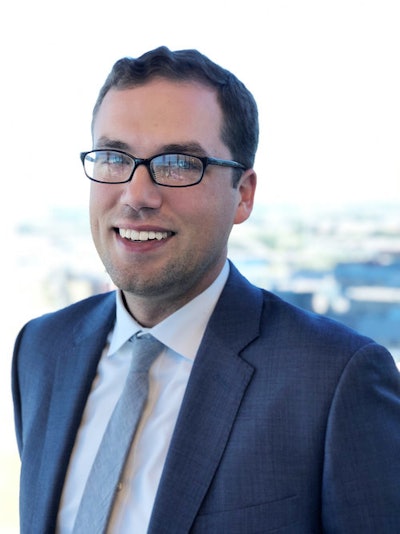It happened again. I recently received an email inviting me to register for a panel discussion on the effects of Covid-19 on higher education. The panel included several people I know; I respect each person on the panel, and all of their work. But there was a problem, and you probably already know what it was. Everyone on the panel was White. Across a full panel of experts discussing this of all topics, how could there not be a single voice from a person of color?
Since then, Pew Research Center has published new data showing, “Black Americans account for about 13% of the U.S. population but 24% of the coronavirus deaths.” In Washington, D.C., where I live, less than half the population identifies as Black, but three out of four COVID-19 deaths to date have been of Black Washingtonians.
The data on COVID-19 deaths and the police killings of George Floyd, Breonna Taylor, and so many other Black Americans are part of the same story. They are but the latest chapters in a more than 400 year-old story of racial oppression, segregation, disenfranchisement, and economic marginalization. As Yale scholar Demar Lewis, IV and many other scholars and writers have noted, the traumatic effects of this country’s history of lynching remain strong among Black Americans–just as police killings perpetuate this trauma intergenerationally.
I have sat uncomfortably on raised chairs during enough panels with only other White speakers. I have rolled my eyes at enough invitations to events on education issues for which only White people would share their views. I have witnessed enough higher education researchers and advocates who make their living on equity work perpetuate cycles of mistreatment of graduate students and early-career colleagues.
To specify steps toward disrupting systemic racism in my field and communities as a White male, I am making a personal pledge:
 Dr. Kyle Southern
Dr. Kyle Southern1. I will not be part of a panel composed of only White speakers. When invited to serve on a panel, I will ask if any advocates/scholars of color are confirmed. If not, I will suggest people of color to invite instead.
2. If circumstances require I be in the audience for an event where only White speakers are featured, I will ask how and why the event was held without any voices from Black, Indigenous, or other people from racially and ethnically minoritized populations.
3. When interviewed for a story on a higher education policy issue, I will refer the reporter to at least two advocates/scholars of color to speak on the topic. At least one of the people to whom I refer the reporter will be a woman who identifies as Black, Indigenous, or as a person of color. Fulfilling this commitment requires me to consistently read and share publications by advocates and scholars of color.
4. I will support programs and professional conferences that make explicit provision for fostering relationships with first-generation scholars and scholars of color (i.e., Black, Brown, or Indigenous). I have adapted this commitment from the Diversify Academia pledge articulated by the Editorial Board of The Activist History Review.
5. In my own organization, whenever I am part of a hiring process, I will insist applicants of color are included in the interview process, and that open position announcements include language explicitly inviting applicants of color and from diverse educational backgrounds to apply. I will make a priority to participate thoughtfully in the organization’s ongoing diversity, equity, and inclusion (DEI) initiatives. I will support efforts to secure external funding for our internal DEI work.
6. At least once a week, I will financially support a business owned by people from or a nonprofit organization directly supporting socially and economically marginalized communities. I will make these investments in places that have been or are near places I have called home: Winston-Salem, NC (first week); Nashville, TN (second week); Washtenaw County or Detroit, MI (third week); and Washington, D.C. (fourth week).
7. Each month, I will write a reflective memo addressing three questions: 1) How did you keep your commitment to anti-racism this month? 2) How could you have better met a commitment to anti-racism this month? 3) How will you act on your commitment to anti-racism in the coming month? I will share this memo with a multiracial group of advocates, friends, and scholars for feedback and accountability.
This pledge is not comprehensive, and it will remain a work in progress. Tenets of the pledge are micro, and must be met by larger commitments to remain active in working for social, political, economic, and cultural change. The commitments arise from my own reflections about the first decade of my career in education advocacy, research, and policy work. I invite White colleagues to make a pledge with specific commitments and measures of accountability to disrupt systemic racism in our field, our places of work, our communities, and our own lives.
As valuable and needed as reading and discussion groups are, we can’t reading-group our way out of White supremacy. We must take action to change social norms, policies, and everyday professional practices.
Last week, Professor Estela Bensimon announced her retirement from the University of Southern California. For decades, Dr. Bensimon has been among the leading lights for advancing racial equity in higher education. Her retirement should serve as a watershed moment for a new generation rising to the challenge of articulating and acting on tangible steps to work toward a more equitable, diverse, and inclusive education environment for the future.
As a global pandemic rages and people again cry in the streets for justice and equal protection under the law, making straightforward but strong self-commitments should only be a foundation upon which to build.
Dr. Kyle Southern is policy and advocacy director for higher education and workforce at Young Invincibles.















